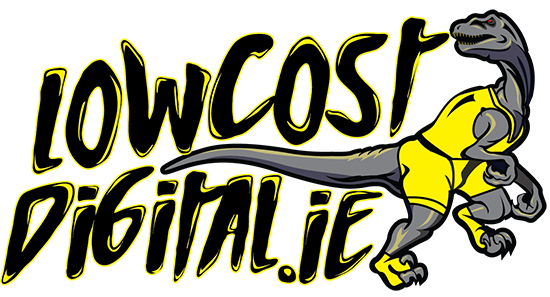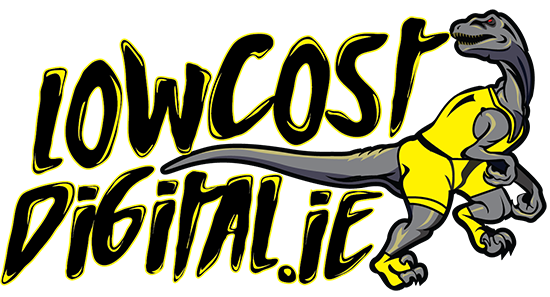What is SEO and why is it important for a website?
SEO, or Search Engine Optimization, is a set of strategies aimed at increasing a website’s visibility and ranking on search engines like Google. Implementing SEO techniques helps drive organic traffic to your site, improves user experience, and boosts credibility and trust, leading to higher conversion rates.
Key Highlights
- SEO (search engine optimization) is essential for improving website visibility and driving organic traffic.
- SEO involves keyword research, content optimization, technical optimization, and link building.
- The higher you rank in search engine results, the more traffic and brand awareness you can generate.
- SEO is more cost-effective than paid advertising and provides long-term benefits.
- Relevance, quality content, user experience, and backlinks are key elements of effective SEO strategies.
- SEO is a continuous process that requires ongoing monitoring and optimization.
Introduction
SEO, or search engine optimization, is a crucial aspect of digital marketing that focuses on improving a website’s visibility and driving organic traffic from search engines like Google. With billions of searches conducted every day, search engines play a significant role in directing users to relevant information and products. By optimizing your website for search engines, you can increase its chances of appearing in the top search results for your target keywords, making it a valuable tool for marketers looking to drive traffic and increase conversions. In fact, organic search is considered to be the highest ROI channel by 49% of marketers, making it a crucial element in the real estate of search engine result pages.
The goal of SEO is to fulfill users’ search needs by creating relevant, high-quality content and providing the best possible user experience. SEO activities can be categorized into two main areas: on-page optimization and off-page optimization. On-page optimization involves optimizing the content and structure of a website to make it more search engine friendly for SEO success. This includes keyword research, content creation, and optimization, as well as technical optimization such as optimizing title tags and meta descriptions. Off-page optimization, on the other hand, focuses on building authority and credibility for a website through link building and other external factors. With the right techniques and strategies, you can master SEO and achieve success for your website. www.lowcostdigital.ie
Understanding the Basics of SEO
Search engine optimization, or SEO, is a set of processes aimed at improving a website’s visibility in search engines and driving organic traffic. When users search for information or products on search engines like Google, the search engine’s algorithm determines the most relevant results to display based on various factors. SEO involves optimizing a website to meet these factors and increase its chances of ranking higher in search engine results.
The first step in understanding SEO is to grasp the concept of search engines. Search engines use algorithms, also known as spiders, to crawl the web and discover new or updated web pages. These algorithms, known as search algorithms, analyze the content of each page and store the information in a database called the index. When a user enters a search query, the search engine retrieves the most relevant pages from the index and displays them in the search engine results page (SERP). This process is similar to how spiders crawl and collect information about web pages using search algorithms.
Relevance is a crucial factor in SEO. Search engines strive to provide users with the most relevant results for their search queries. This means that websites need to optimize their content to match the search intent of their target audience. By conducting keyword research and using the right keywords, such as those found with tools like Ubersuggest, in their content, website owners can increase their chances of ranking higher in search engine results. One important keyword to consider is “content marketing,” as it is highly searched and can help improve a website’s ranking when used effectively in competition analysis.
Organic search is another important aspect of SEO. Organic search refers to the natural, non-paid search results that appear on search engine results pages. These results, also known as organic results, are determined by the search engine’s algorithm and are based on factors such as relevance and user experience. By optimizing their websites for organic search, website owners can attract more organic traffic and increase their online visibility. Understanding the importance of organic results and PPC, or pay-per-click, in SEO is crucial for website success.
Defining SEO and Its Importance
SEO, or search engine optimization, is the practice of improving a website’s visibility in search engine results pages (SERPs) through various strategies and techniques. The main goal of SEO is to increase organic, non-paid traffic to a website by ensuring that it ranks higher in search engine results for relevant keywords.
SEO is essential for businesses and website owners because search engines like Google are often the primary source of website traffic. When users search for information or products, they are more likely to click on the top results that appear in the search engine results page. By optimizing their websites for SEO, businesses can improve their chances of ranking higher in search engine results, thereby increasing their visibility and attracting more website traffic.
In the digital age, visibility is crucial for businesses to thrive. If a website does not appear in the top search results, it is unlikely to receive much traffic. SEO helps businesses improve their online visibility and reach a wider audience. By appearing higher in search engine results, businesses can attract more visitors to their websites, increase brand awareness, and ultimately drive more conversions and sales.
In conclusion, SEO is an essential component of any digital marketing strategy. It helps businesses improve their online visibility, attract more organic traffic, and increase brand awareness. By implementing effective SEO strategies, businesses can stay ahead of their competitors and achieve long-term success in the online marketplace. www.lowcostdigital.ie
The Evolution of SEO Over the Years
SEO has evolved significantly over the years as search engines have become more sophisticated and user expectations have changed. In the early days of the internet, SEO mainly involved keyword stuffing and other manipulative tactics to trick search engines into ranking a website higher. However, search engines quickly caught on to these practices and started updating their algorithms to provide more relevant results to users.
Today, SEO is focused on providing valuable, relevant content and ensuring a positive user experience. Search engines like Google prioritize websites that offer high-quality content, are mobile-friendly, and provide a seamless user experience. This shift in focus has made SEO more user-centric and has forced website owners to prioritize the needs and preferences of their target audience, also known as the searcher. By optimizing for the searcher, websites can attract more traffic and improve their search engine rankings.
Another significant change in SEO is the emphasis on natural, organic link building. In the past, websites could easily manipulate their rankings by acquiring numerous low-quality backlinks. However, search engines have become more sophisticated in detecting and penalizing manipulative link building practices. Today, link building is about building genuine relationships, creating valuable content that attracts natural backlinks, and focusing on quality rather than quantity. SEO experts now understand the importance of building links from high-quality, reputable sources in order to improve website rankings and maintain a strong online presence. With the evolution of SEO over the years, building links has become a crucial aspect of successful website optimization, and email outreach has become a popular method for acquiring valuable backlinks through personalized and targeted emails.
Overall, the evolution of SEO has made it a more holistic and user-centered practice. Website owners and SEO professionals must stay updated with the latest algorithm updates and industry trends to ensure that their websites rank well in search engine results and provide a positive user experience.
Key Elements of Effective SEO Strategies
Effective SEO strategies involve various elements that work together to improve a website’s visibility and organic search rankings. Key elements of effective SEO strategies include on-page optimization, off-page optimization, and technical optimization. On-page optimization focuses on optimizing the content and structure of a website to make it more search engine friendly, including the use of keywords and inbound links. Off-page optimization involves building authority and credibility for a website through link building and other external factors, such as inbound links. Technical optimization ensures that a website meets search engine standards and is easily crawlable and indexable.
On-Page SEO: Optimizing Content for Search Engines
On-page SEO is the process of optimizing the content and structure of a website to improve its visibility in search engine results. It involves various techniques that help search engines understand the relevance and quality of a website’s content. Key aspects of on-page SEO include:
- Keyword research: Identifying relevant keywords that users are searching for and incorporating them naturally into the website’s content.
- Optimization of title tags and meta descriptions: Optimizing the title tags and meta descriptions of web pages to reflect the content and attract clicks from search engine users.
- Content optimization: Creating high-quality, informative, and engaging content that satisfies the search intent of users.
- URL structure: Ensuring that the URL structure of a website is simple, descriptive, and includes relevant keywords.
On-page SEO plays a crucial role in improving a website’s visibility and attracting organic traffic. By optimizing the content and structure of a website, website owners can increase their chances of ranking higher in search engine results and reaching their target audience. www.lowcostdigital.ie
Off-Page SEO: Building Authority Through Links
Off-page SEO refers to the strategies and techniques used outside of a website to improve its search engine rankings. The primary focus of off-page SEO is building authority and credibility for a website through link building and other external factors. Key aspects of off-page SEO include:
- Link building: Acquiring high-quality backlinks from reputable websites that point to a website, signaling to search engines that the website is trustworthy and authoritative.
- Guest blogging: Writing guest posts for other websites in exchange for a backlink to the author’s website.
- Social media engagement: Engaging with users on social media platforms to promote content and increase brand visibility.
- Online directory listings: Listing a website in relevant online directories to improve its visibility and credibility.
Off-page SEO plays a crucial role in improving a website’s authority and credibility. By building high-quality backlinks and engaging with users on external platforms, website owners can increase their chances of ranking higher in search engine results and attracting more organic traffic.
The Role of Quality Content in SEO
Quality content is a fundamental aspect of effective SEO strategies. Search engines like Google prioritize websites that offer high-quality, informative, and engaging content to users. Quality, SEO content, also known as SEO content, not only attracts organic traffic but also encourages backlinks and social sharing, which contribute to a website’s authority and credibility. By crafting content that meets the search intent of users and provides value, website owners can improve their chances of ranking higher in search engine results and attracting a larger audience. Additionally, the usability of a site, which considers factors such as page speed and mobile friendliness, also plays a crucial role in SEO success. A well-designed and user-friendly website with high usability can improve the overall user experience and make it easier for search engines to discover and rank content. www.lowcostdigital.ie
Crafting Content That Ranks: Tips and Strategies
Creating content that ranks well in search engine results requires careful planning and optimization. Here are some tips and strategies for crafting content that ranks:
- Conduct keyword research: Identify relevant keywords that align with the search intent of your target audience and incorporate them naturally into your content.
- Focus on quality and relevance: Create high-quality, informative, and engaging content that satisfies the search intent of users. Provide valuable insights, practical tips, and reliable information.
- Understand search intent: Analyze the search engine results for your target keywords to understand what type of content ranks well. Tailor your content to match the search intent of users.
- Optimize title tags and meta descriptions: Craft compelling and descriptive title tags and meta descriptions that accurately reflect the content of your page and entice users to click.
- Use headers and subheaders: Use headers (H1, H2, H3, etc.) and subheaders to structure your content and make it easier for users and search engines to understand.
- Format content for readability: Break up your content into paragraphs, use bullet points and numbered lists, and include relevant images and videos to enhance readability and engagement.
- Update and repurpose content: Regularly update and repurpose existing content to keep it relevant and fresh.
By following these tips and strategies, you can create content that ranks well in search engine results and attracts organic traffic to your website.
How to Incorporate Keywords Naturally into Your Content
Incorporating keywords naturally into your content is essential for effective SEO. Here are some tips to help you incorporate keywords seamlessly:
- Conduct keyword research: Identify relevant keywords that align with the search intent of your target audience and prioritize them in your content creation process.
- Use keywords strategically: Incorporate keywords in your content’s title, headings, subheadings, and throughout the body. Aim for a natural flow of keywords that enhances readability and relevance.
- Write for humans, not search engines: Focus on creating high-quality, informative, and engaging content that provides value to your readers. A user-centric approach will naturally incorporate keywords while satisfying the search intent of users.
- Avoid keyword stuffing: Do not overuse keywords in an attempt to manipulate search engine rankings. Keyword stuffing can hurt your SEO efforts and make your content appear spammy and irrelevant. Instead, focus on creating valuable content that naturally incorporates relevant keywords.
By following these tips, you can optimize your content for search engines while ensuring a positive user experience and maintaining the quality and relevance of your content. www.lowcostdigital.ie
Technical SEO: Ensuring Your Website Meets Search Engine Standards
Technical SEO is the practice of optimizing a website’s technical aspects to improve its visibility in search engine results. It focuses on ensuring that a website meets search engine standards and is easily crawlable and indexable. Technical SEO involves optimizing factors such as website speed, mobile-friendliness, URL structure, indexing, and more. By addressing technical SEO issues, website owners can improve their website’s performance and increase their chances of ranking higher in search engine results.
Essential Technical SEO Elements to Optimize
Optimizing the technical aspects of your website is crucial for effective SEO. Here are some essential technical SEO elements to optimize:
- Indexing: Ensure that search engines can crawl and index all the pages on your website. Use a robots.txt file to control which pages should be crawled and indexed, and submit an XML sitemap to search engines to help them discover and index your pages.
- Page speed: Optimize your website’s loading speed to provide a better user experience and improve your search engine rankings. Minimize file sizes, leverage browser caching, and optimize images to reduce page load times.
- URL structure: Use descriptive, keyword-rich URLs that provide a clear indication of the content on each page. Avoid using long and complex URLs that are difficult for users and search engines to understand.
- Mobile-friendliness: Ensure that your website is mobile-friendly and provides a seamless user experience on mobile devices. Responsive design, mobile-friendly layouts, and fast-loading pages are crucial for mobile SEO.
- Website security: Implement security measures such as SSL certificates (HTTPS) to ensure that your website is secure and trusted by both users and search engines.
By optimizing these technical SEO elements, you can improve your website’s visibility in search engine results and provide a better user experience for your visitors.
Common Technical SEO Issues and How to Fix Them
Technical SEO issues can hinder a website’s performance in search engine rankings. Here are some common technical SEO issues and how to fix them:
- Crawling and indexing issues: Ensure that search engines can crawl and index your website by checking for blocked pages, incorrect robots.txt instructions, or incorrect use of meta tags. Use Google Search Console to identify and resolve crawling and indexing issues.
- Page speed issues: Optimize your website’s loading speed by compressing images, enabling browser caching, and minimizing code. Use tools like PageSpeed Insights to identify and fix page speed issues.
- Duplicate content: Duplicate content can confuse search engines and dilute your website’s authority. Use canonical tags to indicate the preferred version of a page and set up 301 redirects for duplicate URLs.
- Broken links: Broken links can negatively impact user experience and search engine rankings. Regularly check for broken links and fix or redirect them to relevant pages.
- URL structure issues: Ensure that your URLs are descriptive, keyword-rich, and easily understandable. Avoid using dynamic URLs or unnecessary parameters that can confuse search engines.
By resolving these common technical SEO issues, you can improve your website’s performance in search engine rankings and provide a better user experience for your visitors.
Text table:
|
Common Technical SEO Issues |
How to Fix Them |
|
Crawling and indexing issues |
– Check for blocked pages, incorrect robots.txt instructions, or incorrect use of meta tags. Use Google Search Console to identify and resolve crawling and indexing issues. |
|
Page speed issues |
– Compress images, enable browser caching, and minimize code to optimize website loading speed. Use tools like PageSpeed Insights to identify and fix page speed issues. |
|
Duplicate content |
– Use canonical tags to indicate the preferred version of a page and set up 301 redirects for duplicate URLs. |
|
Broken links |
– Regularly check for broken links and fix or redirect them to relevant pages. |
|
URL structure issues |
– Ensure that URLs are descriptive, keyword-rich, and easily understandable. Avoid using dynamic URLs or unnecessary parameters that can confuse search engines. |
Local SEO: Optimizing for Local Search Results
Local SEO is the practice of optimizing a website to improve its visibility in local search results. It focuses on targeting local audiences and increasing a website’s visibility for location-based searches. By optimizing for local SEO, businesses can attract more local customers, improve their online visibility in specific geographical areas, and increase their chances of appearing in local results, such as the localpack, which is the most prominent element of local results and includes all the information a person would need to choose a business.
Importance of Local SEO for Small Businesses
Local SEO is particularly important for small businesses that rely on local customers. Here are some reasons why local SEO is essential for small businesses:
- Increased visibility: By optimizing for local SEO, small businesses can increase their visibility in local search results. This means that when users search for products or services in their local area, small businesses have a higher chance of appearing in the search results.
- Targeted audience: Local SEO allows small businesses to target specific geographical areas and reach local customers who are more likely to convert into paying customers.
- Competitive advantage: Local SEO can give small businesses a competitive advantage over larger competitors. By targeting specific local keywords and optimizing their online presence, small businesses can attract local customers and establish themselves as trusted providers within their community.
- Online reputation management: Local SEO involves managing online reviews and ratings, which are crucial for building trust and credibility with local customers.
By investing in local SEO, small businesses can improve their online visibility, attract more local customers, and compete effectively in their local market. www.lowcostdigital.ie
Key Strategies for Improving Local SEO
Improving local SEO requires implementing specific strategies that target local audiences. Here are some key strategies for improving local SEO:
- Optimize Google My Business: Claim and optimize your Google My Business listing with accurate and up-to-date information about your business. This will improve your chances of appearing in local search results and attract more local customers.
- Local keyword research: Conduct keyword research to identify local keywords that are relevant to your business and target local audiences. Incorporate these keywords naturally into your website’s content and meta tags.
- Online directory listings: List your business in online directories and review websites that are relevant to your industry and location. This will improve your online visibility and attract more local customers.
- Local content creation: Create high-quality, informative content that is specific to your local area. This can include local news, events, and guides that are relevant to your target audience.
- Online reviews management: Encourage your customers to leave reviews on platforms like Google, Yelp, and Facebook. Positive reviews can improve your online reputation and attract more local customers.
By implementing these strategies, small businesses can improve their local SEO and attract more local customers to their website or physical store.
SEO Tools and Resources
SEO tools and resources are essential for implementing effective SEO strategies and staying up to date with the latest trends and updates in the industry. These tools provide valuable insights, data, and analysis that can help website owners optimize their websites and improve their search engine rankings.
Must-Have Tools for SEO Analysis and Optimization
There are several SEO tools available that can help website owners analyze and optimize their websites. Here are some must-have tools for SEO analysis and optimization:
- Keyword research tools: Tools like SEMrush, Ahrefs, and Google Keyword Planner can help website owners identify relevant keywords, analyze keyword competition, and track keyword rankings.
- Website auditing tools: Tools like Screaming Frog, Moz, and SEMrush can crawl and analyze websites to identify technical SEO issues, on-page optimization opportunities, and backlink profiles.
- Link building tools: Tools like Majestic, Ahrefs, and Moz can help website owners identify link building opportunities, analyze competitor backlinks, and monitor the quality of their own backlinks.
- Analytics tools: Tools like Google Analytics and Google Search Console provide valuable data and insights into website performance, organic search traffic, and user behavior.
- Content optimization tools: Tools like Yoast SEO and SEMrush Writing Assistant can help optimize content by providing recommendations for keyword usage, readability, and search engine optimization.
By using these tools, website owners can gain valuable insights, optimize their websites for search engines, and improve their overall SEO strategy. www.lowcostdigital.ie
Resources for Keeping Up with SEO Trends and Updates
Staying up to date with the latest trends and updates in the SEO industry is crucial for implementing effective SEO strategies. Here are some resources for keeping up with SEO trends and updates:
- Industry blogs: Websites like Search Engine Journal, Moz, and Neil Patel’s blog provide valuable insights, tips, and updates on SEO best practices.
- SEO communities and forums: Platforms like Reddit, SEOchat, and Warrior Forum have active communities of SEO professionals and enthusiasts who share insights, ask questions, and discuss the latest trends in SEO.
- Webinars and conferences: Attend webinars and conferences on SEO to learn from industry experts, gain insights into the latest trends, and network with other SEO professionals.
- SEO courses and certifications: Platforms like SEMrush Academy and Google Digital Garage offer free or paid SEO courses and certifications that cover various aspects of SEO and provide in-depth knowledge and practical skills.
By utilizing these resources, website owners can stay informed about the latest SEO trends and updates, refine their SEO strategies, and ensure that their websites are optimized for search engines. www.lowcostdigital.ie
Integrating Social Media into Your SEO Strategy
Integrating social media into your SEO strategy can enhance your online visibility, increase brand awareness, and improve your search engine rankings. Social media platforms like Facebook, Twitter, and Instagram provide opportunities for businesses to engage with their target audience, attract social signals, and generate valuable backlinks to their website.
The Impact of Social Signals on SEO
Social signals, such as likes, shares, and comments on social media platforms, can indirectly impact SEO by increasing a website’s visibility, credibility, and authority. Here’s how social signals can impact SEO:
- Increased visibility: When content receives a high number of social shares, it has the potential to reach a larger audience and attract more traffic to a website.
- Improved credibility: Social signals can indicate that a website’s content is valuable, informative, and trustworthy, which can boost its credibility in the eyes of search engines and users.
- Valuable backlinks: When content is shared on social media, it has the potential to attract backlinks from other websites, which can contribute to a website’s backlink profile and improve its search engine rankings.
While social signals do not directly impact search engine rankings, they can indirectly contribute to a website’s SEO efforts by increasing its visibility, credibility, and backlink profile.
Best Practices for Social Media SEO
To effectively integrate social media into your SEO strategy, consider the following best practices:
- Brand consistency: Maintain a consistent brand voice and visual identity across all social media platforms to strengthen brand awareness and recognition.
- Shareable content: Create content that is shareable and engaging to encourage social media users to share it with their networks. This can increase the reach and visibility of your content.
- Social media optimization: Optimize your social media profiles and posts by using relevant keywords, hashtags, and compelling descriptions. This can help improve your visibility in social media search results.
- Social media engagement: Actively engage with your audience on social media by responding to comments, likes, and shares. This can foster a sense of community and loyalty among your followers.
- Social media sharing buttons: Add social media sharing buttons to your website to make it easy for visitors to share your content with their social networks. This can increase the reach and visibility of your content.
By following these best practices, you can effectively integrate social media into your SEO strategy and maximize the benefits of both channels. www.lowcostdigital.ie
The Significance of Mobile SEO in Today’s Digital Landscape
Mobile SEO is essential in today’s digital landscape as more users access the internet through mobile devices. Optimizing a website for mobile devices ensures a seamless user experience, improves search engine rankings, and increases organic traffic. With the increasing use of smartphones and tablets, businesses must prioritize mobile SEO to reach and engage their target audience effectively.
Mobile-First Indexing and Its SEO Implications
Mobile-first indexing is a shift in how search engines like Google prioritize and rank websites in search engine results. With mobile-first indexing, search engines primarily use the mobile version of a website’s content for indexing and ranking purposes. This means that if a website is not optimized for mobile devices, it may not rank well in search engine results.
To optimize for mobile-first indexing and improve mobile SEO, consider the following:
- Responsive design: Use a responsive design that automatically adjusts the layout and content of your website to fit different screen sizes and devices.
- Mobile-friendly layouts: Ensure that your website’s layout is user-friendly on mobile devices, with easy navigation, readable text, and clickable elements that are easily accessible.
- Page speed optimization: Optimize your website’s loading speed for mobile devices to provide a smooth and fast user experience.
- Mobile-friendly content: Create mobile-friendly content that is easy to read, scroll, and interact with on mobile devices.
By prioritizing mobile-first indexing and optimizing for mobile SEO, website owners can improve their search engine rankings and provide a positive user experience for mobile users. www.lowcostdigital.ie
Tips for Optimizing Mobile User Experience
Optimizing the mobile user experience is crucial for effective mobile SEO. Here are some tips to enhance the mobile user experience:
- Responsive design: Use a responsive design that automatically adjusts the layout and content of your website to fit different screen sizes and devices.
- Mobile-friendly layouts: Ensure that your website’s layout is user-friendly on mobile devices, with easy navigation, readable text, and clickable elements that are easily accessible.
- Page speed optimization: Optimize your website’s loading speed for mobile devices to provide a smooth and fast user experience.
- Mobile-friendly content: Create mobile-friendly content that is easy to read, scroll, and interact with on mobile devices.
- Clear call-to-action buttons: Make sure that your call-to-action buttons are prominently displayed and easy to click on mobile devices.
- Minimize pop-ups: Avoid intrusive pop-ups that may disrupt the mobile user experience and make it difficult for users to navigate your website.
By following these tips, you can improve the mobile user experience, increase user engagement, and enhance your mobile SEO efforts.
Advanced SEO Techniques and Strategies
Advanced SEO techniques and strategies go beyond the basics of on-page optimization and link building. These advanced techniques focus on emerging trends and technologies in the SEO industry and require a deeper understanding of search engine algorithms and user behavior.
Exploring Voice Search Optimization
Voice search optimization is an advanced SEO technique that focuses on optimizing content for voice-based search queries. As voice assistants like Siri, Alexa, and Google Assistant become more popular, optimizing for voice search is crucial for staying ahead of the competition. Some key strategies for voice search optimization include:
- Conversational keywords: Use long-tail keywords and natural language that aligns with how users speak when using voice search.
- Featured snippets: Optimize your content to appear in featured snippets, as they are often read aloud by voice assistants.
- Local search optimization: Optimize your website for local voice searches by including location-specific information in your content.
- Mobile optimization: Ensure that your website is mobile-friendly and provides a seamless user experience for voice search users.
By incorporating voice search optimization into your SEO strategy, you can improve your visibility in voice search results and attract more organic traffic from voice-based search queries.
The Future of AI and Machine Learning in SEO
AI (artificial intelligence) and machine learning are emerging technologies that are increasingly being integrated into SEO strategies. These technologies have the potential to transform the way search engines rank websites and deliver search results. Some potential applications of AI and machine learning in SEO include:
- Improved search intent analysis: AI and machine learning algorithms can better understand user search intent and deliver more relevant search results.
- Intelligent content creation: AI-powered tools can generate high-quality content and optimize it for search engines, saving time and resources.
- Enhanced user experience: AI algorithms can analyze user behavior and preferences to provide personalized search results and recommendations.
- Advanced data analysis: AI and machine learning can analyze vast amounts of data to identify patterns, trends, and insights that can inform SEO strategies.
As AI and machine learning continue to evolve, they will play an increasingly significant role in shaping the future of SEO. Website owners and SEO professionals should stay updated with the latest developments in these technologies and adapt their strategies accordingly. www.lowcostdigital.ie
Conclusion
In conclusion, mastering the art of SEO is crucial for boosting your website’s visibility and driving organic traffic. By understanding the key elements of effective SEO strategies, crafting quality content, optimizing technical aspects, and embracing local and mobile SEO, you can significantly enhance your online presence. Integrating social media and staying updated on SEO tools and resources further amplifies your digital footprint. Embracing advanced techniques like voice search optimization and AI integration will future-proof your SEO efforts. Remember, SEO is an ever-evolving landscape, so staying informed and adapting to changes is key to staying ahead in the digital game. www.lowcostdigital.ie
Frequently Asked Questions
What Are the Most Common SEO Mistakes to Avoid?
Common SEO mistakes to avoid include keyword stuffing, neglecting on-page optimization, focusing too much on quantity over quality when it comes to backlinks, and ignoring user experience factors such as website speed and mobile-friendliness.












